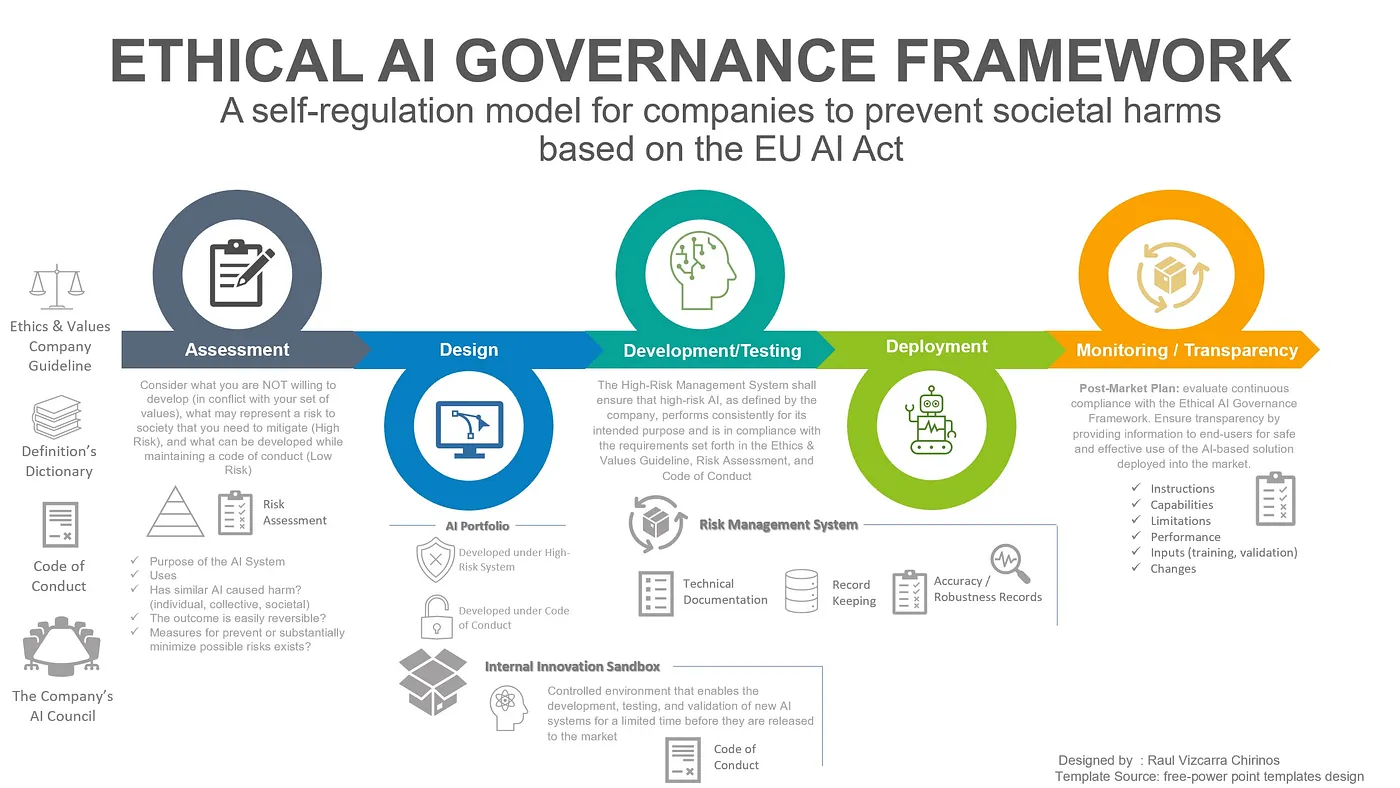
Understanding Ethical AI: What It Is and How to Implement It
- Generative-ai
- 20 May, 2022
As artificial intelligence (AI) becomes increasingly integrated into our daily lives, the importance of ensuring that these technologies are used ethically has grown. Ethical AI is a framework that prioritizes fairness, accountability, and transparency in AI systems. This article delves into what Ethical AI is, why it matters, and how organizations can implement it effectively.
What is Ethical AI?
Ethical AI refers to the development and deployment of AI systems in a manner that is morally sound and responsible. It involves ensuring that AI technologies adhere to ethical principles such as fairness, accountability, transparency, and respect for user privacy and rights.
Key Principles of Ethical AI:
- Fairness: AI systems should be designed to avoid bias and discrimination, providing equal treatment to all users.
- Accountability: Organizations must take responsibility for the outcomes of their AI systems and ensure there is a clear framework for addressing any negative impacts.
- Transparency: The decision-making processes of AI should be transparent, allowing users to understand how decisions are made.
- Privacy: AI systems should respect user privacy and protect sensitive information from misuse or unauthorized access.
Why Ethical AI Matters

The ethical deployment of AI is crucial for several reasons:
- Trust: Ethical AI helps build trust between users and AI systems, which is essential for the widespread adoption of these technologies.
- Legal Compliance: Adhering to ethical standards ensures compliance with regulations and laws that govern AI use.
- Social Responsibility: Ethical AI promotes social good by preventing harm and promoting positive outcomes for society.
- Sustainability: Implementing Ethical AI practices supports long-term sustainability by ensuring that AI systems are beneficial and non-destructive.
How to Implement Ethical AI
Establish Ethical Guidelines
Creating a clear set of ethical guidelines is the first step in implementing Ethical AI. These guidelines should outline the principles and standards that AI systems must adhere to.
- Define Values: Identify the core values that your organization wants to uphold, such as fairness, transparency, and accountability.
- Create Policies: Develop policies that incorporate these values into all stages of AI development and deployment.
Ensure Fairness and Mitigate Bias
AI systems must be designed to minimize bias and ensure fair treatment of all users.
- Diverse Data: Use diverse and representative datasets to train AI models, reducing the risk of biased outcomes.
- Bias Audits: Regularly conduct bias audits to identify and address any unfair practices in AI systems.
Promote Transparency
Transparency in AI decision-making processes is essential for building user trust and understanding.
- Explainable AI: Implement explainable AI techniques that allow users to see how decisions are made and why certain outcomes are reached.
- Open Communication: Maintain open communication with users about how their data is used and how AI systems operate.
Uphold Accountability
Organizations must take responsibility for the impact of their AI systems.
- Impact Assessments: Conduct regular impact assessments to evaluate the social, economic, and ethical implications of AI systems.
- Responsibility Frameworks: Establish frameworks that define who is accountable for AI-related decisions and outcomes.
Protect Privacy
Respecting user privacy is a fundamental aspect of Ethical AI.
- Data Protection: Implement strong data protection measures to safeguard user information.
- Consent Management: Ensure that users provide informed consent for data collection and use.
Ethical AI is essential for the responsible development and deployment of artificial intelligence technologies. By adhering to principles of fairness, accountability, transparency, and privacy, organizations can build trustworthy AI systems that benefit society. Implementing Ethical AI involves establishing clear guidelines, mitigating bias, promoting transparency, upholding accountability, and protecting user privacy. As AI continues to evolve, the commitment to ethical practices will play a crucial role in shaping a positive and sustainable future for AI.


